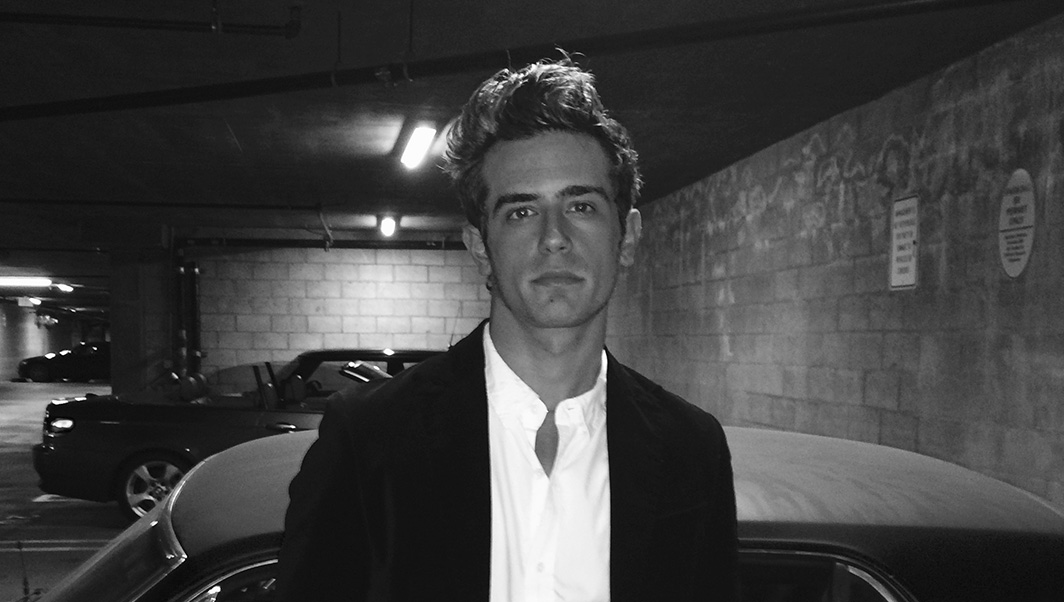Exclusive Interview: Pop Culturalist Chats with On Thin Ice’s Keli Price


Before Keli Price‘s great-grandfather, Jack Brooks, passed away, he promised him he would tell his story. Jack was an elite speed skater who wasn’t eligible to compete on the Olympic team because of who he was, despite being one of the country’s top athletes.
While stepping into the shoes of his great-grandfather, Keli, a first time director and producer, gained a deeper appreciation for the obstacles that Jack had to overcome. Along the way, he discovered a larger story about athletes facing discrimination and their struggles to level the playing field.
Pop Culturalist had the pleasure of speaking with Keli about the filmmaking process.
PC: Tell us about On Thin Ice.
Keli: On Thin Ice is a documentary on my great-grandfather, Jack Brooks, who was a world-class speed skater and Jewish immigrant. I grew up hearing his stories and there was something beautiful about the life that he lived, what he was able to accomplish, and what he wasn’t able to accomplish because of who he was.
I told him before he passed away that I would make a movie about his life. I had no idea how to do it, but I jumped right in. I started making this movie about my great-grandfather and cut to four years later, and this documentary became a film about inequality in sports. It explains what my great-grandfather had to go through, and what athletes and people in society still go through today. Discrimination still exists, and this story is told through the realm of sports.
PC: Did you learn anything new about your great-grandfather during this process?
Keli: I learned a lot about his perseverance and the adversity that he had to overcome. I knew about it while he was alive, but during the filmmaking process and getting to speak with all the other athletes, I got a better idea of what he had to go through.
When I went to Ellis Island with my grandfather (my great-grandfather’s son), I was able to learn a lot more. You really don’t understand where someone is coming from until you walk in their shoes. When I went to Ellis Island, I saw where he was quarantined—where he was held for a few weeks before he got to the States. I was able to see his plaque on the wall, and feel what he was going through when he got there as a young boy landing in a new world without his family.
PC: This has been a passion project of yours for a while. You’ve been pretty open about the obstacles you’ve faced throughout the process on Kickstarter. Tell us about your journey with the film and how you were able to persevere.
Keli: That’s funny. The Kickstarter page was at the very beginning, roughly five years ago, and the obstacles that I faced back then weren’t even closed to the obstacles that I faced during the project. There were new obstacles every step along the way.
First of all, I had never made a movie before as a director or producer. I was only in front of the camera before this, so you can only imagine. Then, I had to find somebody that could shoot the movie. I had to figure out how to craft the story. I had to get in touch with the athletes after I realized that this was a bigger story. These are well-known athletes, so it wasn’t easy to get in touch with them—it took weeks to hear back from some of them. Once we got in touch, they were very responsive, helpful, and just incredible. They’ve all gone through so much, and you could see how it made them better people. They’re some of the coolest, well-rounded, and most beautiful people I’ve ever met.
I was a kid, who had never directed before, trying to make a movie. I had to find a cast, cinematographers, sales representatives, and distribution. I would send emails upon emails. Those were some of the obstacles, but there were so many more. My co-producers will tell you, it’s been an uphill battle. We kept moving because we knew that we had something special. We knew we were going to get it made.
PC: We’ve spoken with other filmmakers who’ve shot documentaries, and a common theme is that the story and initial idea evolves and changes as production goes on. It sounds like you had a very similar situation. At what point in the process did you realize that was happening?
Keli: That’s a great question. When the film crew and I went to Ellis Island, we were there to shoot a few things to tell my great-grandfather’s story. After that, I got in touch with a couple of Olympic speed skaters to see if they could help us tell this story. I flew to Colorado and filmed a speed skater named Brian Hansen. He’s a U.S. Olympic speed skater and was studying at the University of Colorado Boulder at the time. From there, Brian connected me with Emery Lehman, another U.S. Olympic speed skater. Through Emery, I was connected with another Olympic speed skater, and it branched out from there. It was then that this idea came to me that this was something larger than just my great-grandfather. It’s still happening today, and the athletes that are currently experiencing it should tell their stories.
PC: In the documentary you interview several different trailblazers from a variety of sports. What was that collaboration like and how did they all get involved?
Keli: Yeah! I interviewed a bunch of trailblazers from a variety of sports: Robbie Rogers, Greg Louganis, Aimee Mullins, Michael Sam, so on and so on. They’re all amazing trailblazers.
My brother, who’s also a producer on this film with me, was researching athletes that have experienced discrimination or were trailblazers, like you said. While he was doing his research, he found Robbie Rogers. He sent an article to me and was like, “This guy is amazing. We have to get him,” and I couldn’t have agreed more. I emailed Robbie’s agent at the time, and he got right back to me. I remember I was sitting at a Lakers’ game when I got that email. I was really, really happy. I knew that if he was in the movie, people would really understand what it’s like to have to hide yourself in a place where your views are unwanted.
Sports have a very specific mentality. The people that are involved in sports, especially the owners, have specific viewpoints. If you don’t fit into that mold, you’re sometimes cast off as an outsider. You’re deemed a distraction because you’re taking away from just playing the game. So, I went to Robbie’s house in Los Angeles and interviewed him. It was surreal. It was an amazing thing to watch somebody fully there and available that has done incredible things in the world of sports, soccer, and for the LGBTQ+ community.
PC: What was the biggest takeaway from this project?
Keli: The biggest takeaway for me was being able to walk a mile in somebody else’s shoes. I learned a lot about what these athletes have to deal with. You never know what someone is going through, and I think that’s a huge message of the film.
The people who kept my great-grandfather from competing in the Olympics didn’t know anything about him other than the fact that he was an immigrant and was Jewish. They didn’t know if he was a loving person, if he was a loving father, if he was kind, generous, or smart. They didn’t know anything about him, yet they cast him off as a nobody, or somebody that wasn’t allowed to compete.
It’s the same thing with these athletes. Robbie Rogers’ teammates were joking around with him in the locker room, making homophobic slurs and remarks, not realizing the internal struggle he was dealing with.
PC: Has it inspired you to continue to write, produce, and direct?
Keli: Absolutely! It’s something that I never thought that I would do. I watched the film the other night and I cried. I sat there and cried because I was able to tell a story about someone who’s close to my heart. This career is about going out there and trying to make a positive statement. We can all come together and create content that betters society.
Pre-order On Thin Ice on iTunes or Fandango Now.
Recent Posts
Exclusive Interview: How The Parenting’s Dean Norris Took That Scene to the Next Level
Craig Johnson’s The Parenting delivers the perfect blend of horror and hilarity, turning a classic…
Exclusive Interview: Director Craig Johnson and Writer Kent Sublette on Balancing Horror, Comedy, and Heart in ‘The Parenting’
Meeting the in-laws is stressful enough—throw in a 400-year-old poltergeist, and things go completely off…
SXSW 2025: Florence Hunt and Rory Walton-Smith on ‘Mix Tape,’ First Love, and Their Artistic Process
First love is unforgettable. It leaves an imprint, shaping the way we see the world,…
SXSW 2025: Why ‘F*ckUps Anonymous’ Is More Than Just a Show—Joe Tierney, Katrina Whalen, Sarah Jeffery & Andrew Michael Fama on Giving a Voice to the Voiceless and the Power of Storytelling
Television has the power to do more than entertain—it can challenge, heal, and transform. Some…
SXSW 2025: Siobhan McCarthy, Misha Osherovich, and Nico Carney on Reclaiming Comedy Classics with Trans Inclusion in ‘She’s the He’
Comedy classics like Mean Girls, She’s the Man, and Clueless have shaped generations with their…
Daring, Unpredictable, and Unforgettable: Tyler Cornack’s ‘Mermaid’ Dives into SXSW 2025 with Stars Johnny Pemberton and Avery Potemri
To say Tyler Cornack is a visionary would be an understatement. His fearless approach to…


